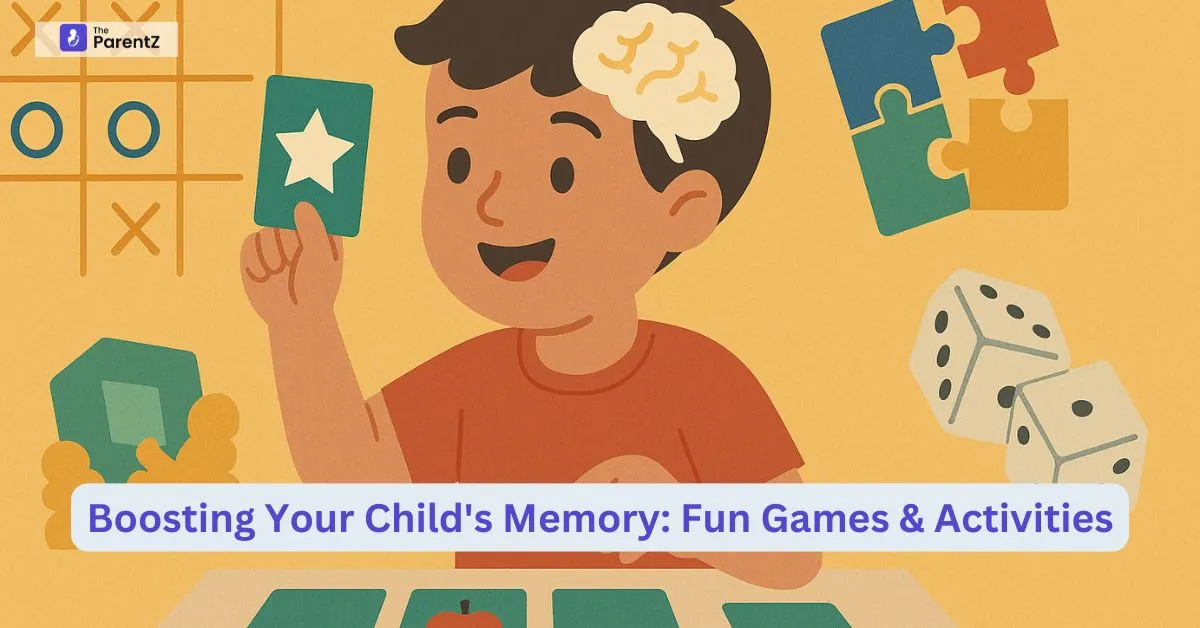As parents, we often marvel at how quickly our kids can memorize the lyrics to their favorite songs or the levels of a video game. But when it comes to remembering schoolwork or following instructions, things may not seem as sharp. The good news? Memory isn’t just a natural ability—it’s a skill that can be nurtured and strengthened through playful, everyday experiences. In this article, we’ll explore a variety of fun, brain-boosting games and activities that not only help improve your child’s memory but also make learning feel like an adventure. Let’s turn forgetfulness into focus—one game at a time.
1. Memory Card Match
This simple yet effective game strengthens visual memory and focus. Using homemade or store-bought cards with animals, shapes, or colors, children flip them over and try to find matching pairs. Increasing the number of cards or incorporating themes like "animals and their habitats" can further challenge their memory skills. Studies from the University of Michigan suggest that matching games enhance cognitive flexibility and concentration.
2. "Simon Says" with a Twist
This classic game is a powerful memory booster. Starting with simple two-step commands like “Simon says touch your nose, then hop,” the difficulty gradually increases by adding more complex actions or silly movements. This strengthens working memory and auditory processing as children must hold and execute multiple instructions at once.
3. Story Chain
Encouraging narrative thinking and sequential memory, each participant takes turns adding a sentence to an evolving story. For example, one child starts with, “Once, a dragon ate a taco…,” followed by another child adding, “…that exploded into glitter!” The next day, children can try recalling and retelling the entire story, reinforcing their memory through storytelling. Research highlights that narrative play enhances both creativity and the ability to remember information in a structured sequence.
4. Treasure Hunt
Engaging children in spatial memory challenges, this game involves hiding objects and providing clues, such as “Take two steps left from the blue chair.” For an added challenge, rhyming riddles can be introduced. Studies indicate that spatial navigation activities stimulate the hippocampus, a key brain region for long-term memory formation.
5. "What’s Missing?" Tray Game
This activity sharpens observation and recall skills. Place 5–10 items on a tray, let children study them, then remove one while they close their eyes. They must identify what’s missing, encouraging focused attention and memory retention. Increasing the number of objects or swapping similar-looking items, such as different coins, can make the game more challenging.
6. Rhythm Repeat
Enhancing auditory memory, this game involves clapping or drumming a sequence (e.g., clap-clap-stomp) and having children mimic it. Adding body movements or using instruments further stimulates memory pathways. Research suggests that rhythmic activities strengthen sequencing and auditory processing skills.
7. "Picture This" Drawing
This activity boosts visualization skills by describing a scene—such as “a purple cat riding a skateboard”—and having children draw it from memory. Comparing their drawings to the original description reinforces accuracy and recall. This strengthens visual-spatial memory, a critical skill for problem-solving and reading comprehension.
Pro Tips for Parents
To maximize memory development, parents can incorporate strategies into daily routines:
- Chunking Information: Breaking tasks into smaller steps helps children retain details more easily (e.g., “First put on your shoes, then grab your backpack”).
- Linking Learning to Emotions: Introducing humor or excitement makes information more memorable.
- Quality Sleep: Essential for memory consolidation, children should get 10–12 hours of rest per night.
- Spaced Repetition: Revisiting new words and concepts over several days ensures information moves from short-term to long-term memory.
Tech Tools to Try
Digital tools can complement hands-on learning:
- Memory Trainer (iOS/Android) offers mini-games that enhance pattern recognition and focus.
- Khan Academy Kids provides memory-based puzzles in an engaging format.
- Endless Alphabet integrates letter recognition with memory challenges.
Screen time should be limited to 20–30 minutes per session, balanced with real-world play to reinforce learning.
For Diverse Learners
Every child learns differently, so adapting memory-boosting activities to their strengths can be beneficial:
- Kinesthetic Learners: Benefit from physical engagement, such as acting out stories or spelling words using body movements.
- Auditory Learners: Excel with songs and rhymes to memorize facts.
- Children with Anxiety: May perform better in low-pressure environments where mistakes are treated playfully rather than critically.
The Big Picture
Developing strong memory skills is not about rote memorization but about making meaningful connections. Parents can integrate memory-building games into daily life in simple yet effective ways:
- During grocery trips, challenge children to remember three essential items.
- On car rides, play memory games by asking them to spot five red cars and recall them later.
- At bedtime, recount the best moments of the day to strengthen episodic memory while fostering emotional bonding.
By transforming everyday activities into brain-boosting opportunities, parents can help their children develop lasting cognitive skills in a fun and natural way








Be the first one to comment on this story.